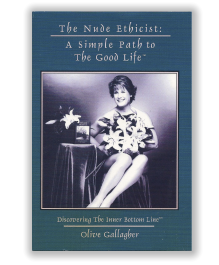“Lancing Lance”
There’s not a lot to say about Lance Armstrong and the mess in which he now finds himself that isn’t already being written and screamed about on every media channel. Pundits and talking heads have been having a field day with this since Lance first announced he was finally going to admit to doping while cycling, and with the TV interview with Oprah Winfrey airing tonight, the noise will continue to go on indefinitely.
Thursday morning, another key, devastating blow fell when the IOC announced it was stripping Lance of the Olympic Medal he won in 2000 in Sydney, Australia. Ouch. That has to really hurt.
I couldn’t help but wonder, as I woke up this morning, how Lance was feeling when he opened his eyes to the day (if he slept at all). As an ethicist, it’s part of my job to question and ponder the human impact and toll any deed might have on a person and not just determine if it’s right or wrong, good or bad. The judgment part is the cheap, easier part; on The Inner Bottom Line, there is no judgment, only accountability for what is and what might be and the cost on humanity that any choice exacts.
And finally, along with the questioning comes the empathy. For no matter what Lance Armstrong may have chosen to do in the past, whatever bad choices he may have made, he is not a bad person, just someone who took an unhealthy path and not only lied repeatedly, to himself and to others, but a man whose actions and choices have now impacted a lot of innocent, well-meaning volunteers and supporters who believed in him and in his charity. Livestrong, the organization Lance founded to fight cancer may, perhaps, end up being the most heartbreaking casualty in this entire debacle, more so than the sport of cycling or even Lance’s future.
So in all the blaming and shaming and pointing of fingers and throwing of stones at Lance’s glass house, let’s please remember that he has a family and is a father. He’s going to have to live with his choices and this outcome for the rest of his life, and trust me, he doesn’t need anyone to remind him of the consequences of his decisions or the price he’s paying for the life he’s been living until now.
Sadly, I know my comments will fall on deaf ears, because that’s not the way we do things anymore, is it? What I find most tragic and notable in all of this is the way in which our country, our culture, now enters into a frenzied state of criticism and attack whenever a public figure or icon falters or falls. It’s like chum in the water to sharks. In the shock and dismay at the deed, there’s often a smug “gotcha” as the celebrity falls noisily, often to jeering and shouts, off their sacred pedestal.
While we may appear to worship, emulate and obsess over the most famous faces-du-jour in a dreadfully dysfunctional manner and many of us secretly envy and wish we had their looks, their life, their money and their fame, we are just as ready to bash them down without even a backward glance if they screw up big-time. And in all the glee, there’s hardly any thought given to how we might feel if that we were in the pilloried person’s shoes.
In a thoughtful article this morning in time.com, one writer mused about the odd disparity between some celebrities who fall hard and yet somehow manage to get up, receive forgiveness from the masses and resurrect their careers and fortunes, while others step too far over the line and are joyfully tossed over the cliff by the public, never to rise again. Mel Gibson falls into the latter category, while Charlie Sheen, God bless his nutty mind, resides in the former, and is already on top of the world again after a disastrous outing in 2011, now “winning” as he predicted he would.
We seem to care about and end up eventually forgiving some who do unthinkable things, and banish others who do similar deeds. Why is that? And why do we, the public, seem to feel we have the power to destroy one life and grant reprieve to another. Has it always been that way?
I suspect so. And I readily acknowledge, given my background in crisis management, that if the fallen behaves in a certain way and follows certain guidelines while they’re on their knees looking up, that they can pretty much talk and walk their way back to “Go” again. We buy remorse, regret, and atonement. We do not warm to disdain, denial or arrogance. And while that makes sense on a very elemental level, sometimes even the rules don’t apply in this crazy game of “get out of the jail of public opinion.”
It also may have something to do with how aligned the grievous acts are to the talent or skill that brought fame to the celebrity in the first place. In Charlie’s case, while his personal life read like a loony bin map, he was still funny and provocative on camera as a character, even if the character was based on his looniness. In Lance’s case, just like Barry Bonds, his doping directly impacted his ability to perform and succeed in the sport that brought him fame.
I also wonder if being part of a team sport, where one’s behavior impacts and brings down everyone else around you, adds to the crime. And finally, in Lance’s case, add to all of the above the disastrous impact his confession has had on his wonderful charity, Livestrong. No doubt, his behavior has wounded and disappointed countless others who have supported and contributed to him and the organization for years.
Bottom line: When you lie to avoid personal accountability and end up hurting someone else, it’s not acceptable behavior. And that brings us back again, as always on The Inner Bottom Line, to choices. Often really scary, hard ones. As well as to honesty not being the same as truth.
Now I’m sure, on occasion, Lance told the truth, even if it was a tiny bit of the whole truth, to fit the moment and keep the lie moving forward. But he obviously wasn’t honest. At all. And that’s where he crossed the line as well as his own Inner Bottom Line, which today lies in tatters.
In the end, credibility can’t be mended easily if at all. It has to be earned. While it is my personal hope that Lance, in time, will be able to find a meaningful and satisfying way to live his life again, it’s going to be a very tough, lonely uphill climb. The take-away from all of this is first, to acknowledge that we lie best to ourselves, and in not being honest and accountable for our actions and our choices, we not only disrespect everyone else but also ourselves, and lastly, that we, too, if we choose to lie to ourselves and others about our relationships or our work, could end up trudging right up the mountain next to Lance.
Olive
You can submit your questions or book private phone sessions with Olive at theinnerbottomline.com, explore her new blog at whatskeepingyouawakeatnight.com, or call into her blogtalkradio.com show, “The Inner Bottom Line,” at 661-449-1425 with your questions. All letters and calls can be anonymous and confidential.
Kindle and audio versions along with the hard cover of Olive’s book, The Nude Ethicist: A Simple Path to The Good Life, are now available on amazon.com.
Tags: choices, cover ups, disrespect, greed, integrity, lies, misuse of power, Personal Accountability, respect
Personal Best® What We Do
Personal Best® How We Do It
We provide custom consulting and coaching services that focus on the relationship between values and choices, and explore the ethical use of power and control.
These seminars, training sessions and lectures have helped thousands of individuals and companies, large and small, improve leadership, accountability, communications, customer relations and productivity with measurable results that have directly impacted their bottom line.
Private Coaching Sessions in office or by phone with Olive
Some Personal Best® clients have included…
Toyota, P&G, PG&E, IBM, Pacific Bell, Telefora, Santa Fe Public School System, New Mexico State Library Association, Supercuts, Department of Labor, National Association of Realtors, Coldwell Banker, The Forum for Corporate Directors, Rockwell International, Western Athletic Clubs, Canyon Ranch Spas, Gibraltar Savings, Patelco, Executive Life, and the EMBA Programs at USC, UCLA, Pepperdine and USF.
For more information on how we can provide seminars, private coaching and training, lectures and keynote speeches for you, email us at [email protected].
“The Inner Bottom Line” episodes on Blog Talk Radio
Who is Olive Gallagher?
Info on our Creative Infusion Agency Division
…when a good idea isn’t good enough.
CI has been creating award-winning brand marketing campaigns and concepts for decades. Our clients include Gallo, Lucent, Softbank, The Learning Company, ClubPhoto. com, AllAdvantage.com, AOL, Disney.com, the American Heart Association, and Filoli.
We believe that words are important. So choose them wisely. And keep the promises you make.
For more information, please contact [email protected].









